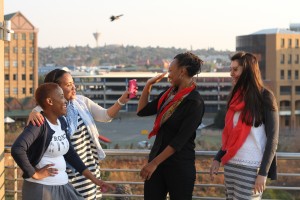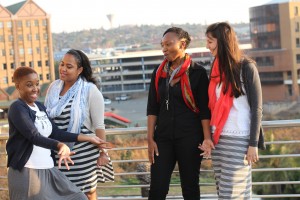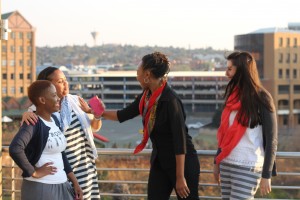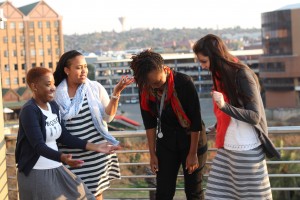Account and territory changes often happen, especially around this time of the year. While its important to ensure a smooth transition, I’ve also found it useful to be intentional about understanding what made the relationship flourish.

A couple of years ago, while transitioning one of my top accounts to a new account team, I emailed my executive contact informing him of the news. In the note, I thanked him for a great partnership over the years and asked if we could stay in touch.
He could have replied with one or two words like most busy executives do.
But he didn’t.
Instead, he took his time to pen a thoughtful reply. In the note, he was full of gratitude for all the milestones we reached together. He ended his message by saying, “Thanks for being an extension of my team.”
In a follow-up telephone conversation, he made a comment that stood out to me:
“You and your team spoke our language.”
As an immigrant from Nigeria, one of the small joys I experience is meeting a fellow Nigerian that speaks Igbo. Our fake American accents immediately vanish from our lips as we hail each other.
Seeing us from afar, you’d think we grew up in the same household. What makes it easy to open up to each other is the shared dialect weaving an invisible chord between us.

The same feeling is evident among business leaders when they meet sales professionals who understand their business so well that it seems like they both speak the same language. They become more forthcoming with their challenges, aspirations, and objectives because the salesperson can empathize with their view of the world and is equipped with the depth of knowledge to be a true partner.
Learning to speak a customer’s language isn’t a one-time event like cramming the night before a big exam. Instead, it’s a continuous, round-the-clock process.
Some of my go-to resources are the company’s website, press releases, industry publications, earnings transcripts, annual statements, letters to shareholders, interviews (print and digital), social media posts, news articles, user conferences, conference & keynote presentations, competitor’s press releases, analyst reports, LinkedIn profiles, YouTube channel, google alerts, research papers, books, business publications, experts within your company…it’s nonstop.
An additional resource to learn how to speak a customer’s language is by speaking directly to my customer’s customer. I also enjoy reading product and software reviews. If you sell to software companies, a great resource is G2 reviews.

Executives also want humble yet bold salespeople who will tell them when they are heading in the wrong direction. My executive contact shared that whenever his department was having a problem, it felt natural to reach out to my team.
He didn’t expect us always to have the answers, but he valued our ability to ask the right questions and infuse a refreshing outlook that would eventually get them unstuck.
The ability to ask relevant questions comes from years of exposure to various customer challenges and solutions. This constant exposure creates an arsenal of decision-making and problem-solving frameworks.
Forward-thinking business leaders crave this knowledge from salespeople, and smart salespeople proactively share this knowledge with business leaders.

An example of all these coming together was when I wore my customer’s branded T-shirt while traveling from Seattle to San Francisco for a meeting. While at the airport, my customer’s client approached me and struck up a conversation. This individual shared some constructive feedback on my customer’s product and suggested a few feature requests to address his company’s specific requirements.
In my meeting later that day, I kicked it off by saying,
“I had a conversation with one of your clients who offered a few ideas on how to make things easier for him….”
This led to a productive and collaborative meeting.
In 2021, I hope you make it a goal to be an extension of your customer’s team by learning to speak their language and hailing them to success.

Action steps:
#1 — Invest the time required for a smooth account transition and be intentional about finding out the true temperature of each executive relationship. Not only would this help jumpstart the new account team, it’ll also be learning to take to a new account and territory.
#2 — Learn to speak your customer’s language by taking small steps everyday. It can be as easy as setting up Google alerts for specific keywords related to the company, industry, executive team, and competitors. Reviewing these alerts at least twice a week will keep you updated on relevant news about your customer.
#3 — Ask for your customer’s branded T-shirt and wear it with pride.
Godspeed selling!






